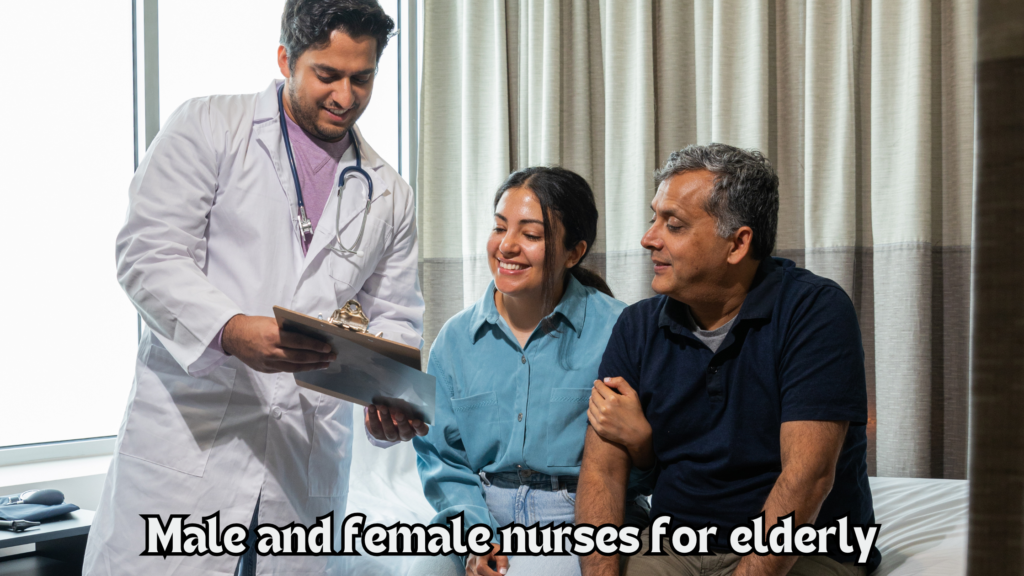👨⚕️👩⚕️ Male and Female Nurses for Elderly
✅ 1. Definition:
Male and female nurses for elderly care are professionally trained caregivers (ANM, GNM, or B.Sc Nursing) who provide medical and personal care to senior citizens in hospitals, nursing homes, or directly at home. They assist with daily activities, chronic illness management, post-surgery recovery, and emotional support.
🎯 2. Objective:
- To provide personalized nursing care for elderly patients based on their health condition, gender preference, and comfort.
- To ensure safety, hygiene, and proper treatment in the comfort of the elder’s home or care center.
- To support families in managing the complex needs of aging loved ones.
🌟 3. Key Roles & Features:
👨⚕️ Male Nurses – Ideal for:
- Elderly male patients with mobility issues
- Lifting or shifting heavier patients
- Catheter or physical therapy needs
- Patients more comfortable with male presence
👩⚕️ Female Nurses – Ideal for:
- Elderly female patients needing personal care
- Bathing, toileting, grooming, dressing
- Companionship and emotional support
- Situations where privacy and gender sensitivity matter
🛏️ Nursing Tasks Performed:
- Monitoring vital signs (BP, pulse, sugar, oxygen)
- Administering medicines or injections
- Wound dressing, tube feeding, catheter care
- Bathing, oral care, diaper changing
- Bed sore prevention, repositioning
- Assistance with mobility and daily routines
- Recording and reporting patient condition to doctors/family
💎 4. Advantages:
- ✅ Professional & Trained: Nurses have medical knowledge and caregiving skills
- ✅ Gender-Appropriate Comfort: Elders feel more secure and at ease
- ✅ 24/7 or Flexible Shifts: Available for day/night or full-time care
- ✅ In-Home Convenience: Avoids hospital stay, offers personalized support
- ✅ Respect for Privacy & Dignity: Especially for female elders
- ✅ Safe Emergency Handling: Trained for critical health responses

